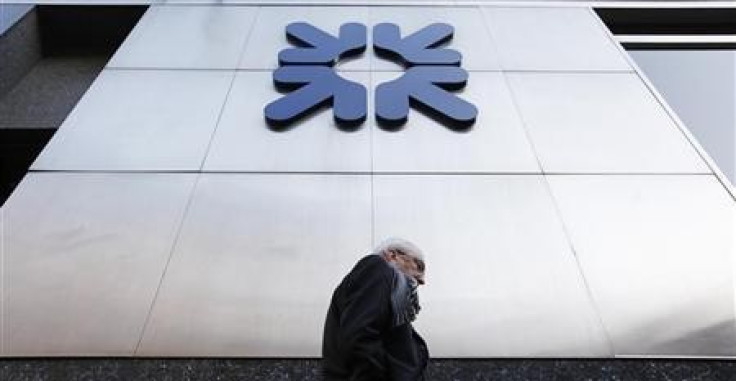Mis-Selling Derivatives Scandal: RBS Says Potential Payouts Will Be Less Than FSA Pilot Findings

RBS' chief executive Stephen Hester says that it's likely that the proportion of businesses to have been mis-sold interest rate hedging derivatives will be significantly less than the 90 percent the UK regulator unveiled in its Pilot Scheme because the bank sold "a lot more simple products."
In an 2012 earnings conference call on Thursday, Hester said that "our percentage of small-to-medium enterprises (SME) being mis-sold interest rate hedging products will be lower overall, because 95 percent of products we did sell are completely straightforward; such as capping or fixing."
At the end of January this year, the Financial Service's Authority (FSA) unveiled its findings from a pilot scheme that examined the sale of 173 so-called interest rate swap agreements (IRSAs) to British firms found that at least 90 percent of those did not comply with at least one or more regulatory requirements.
While some 40,000 interest rate swap agreements (IRSA) sold to UK businesses are said to be eligible for review, the pilot scheme was aimed at assessing a select number of cases in order to test the range of disputes and assess the scale of redress owed to customers who were mis-sold these complex derivatives.
RBS posted a £5.2bn pre-tax loss for 2012, despite improving operating profits, as the state-owned lender continues to pare down its balance sheet and move towards the sale of the government's 82 percent stake.
Within this loss, RBS revealed that it took a £450m charge for mis-sold payment protection insurance (PPI) and strengthened the cumulative provision for PPI to £2.2bn, from which £1.3bn in redress had been paid by the end of last year.
While the bank had initially only set aside £50m in IRSA mis-selling IRSA redress, it said that following the FSA's announcement of its pilot review findings and redress framework, it would add another £650mn to the compensation pot.
In an exclusive interview with IBTimes UK this month, Conservative MP Guto Bebb and founder of the All Party Parliamentary Group on mis-selling interest rate hedging products to SMEs, told us that RBS was one of the more concerning banks as it has been less willing to suspend payments, "which would help businesses to survive in the short term and not to fall into administration."
IRSAs are contracts between a bank and its customer where typically one side pays a floating, or variable, rate of interest and receives a fixed rate of interest payments in exchange.
They're used to hedge against extreme movements in market interest rates over a given period. Companies that have seen the value of these products move against them as rates fell during the recession, now owe banks crippling sums of money in interest payments each year.
© Copyright IBTimes 2024. All rights reserved.






